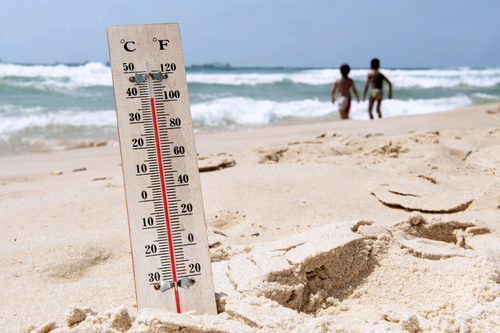Milk May Not Be So Wholesome After All Posted by Staff (07/20/2012 @ 6:27 pm) 
The debate centers around school lunch and the longtime promotion that milk builds strong bones. Dr. Neal Barnard, president of the PCRM, (Physicians Committee for Responsible Medicine) has stated that, “Research has now made it abundantly clear that milk doesn’t build strong bones. Whether we are talking about children who are forming bones or older people who are trying to keep their bone integrity, milk doesn’t have a beneficial effect on either one.” The promotion of milk to help build strong bones in kids is, “in effect, the promotion of an ineffective placebo,” writes the Physicians Committee for Responsible Medicine (PCRM) in its petition [PDF]. “Milk is high in sugar, high in fat and high in animal protein” — all of which counters its purported benefits to bone health, the committee argues. The PCRM notes that dairy products, including milk, are the No. 1 source of saturated fat in Americans’ diets. Drinking milk for the calcium it contains is therefore a losing strategy, especially since people can get their daily recommended calcium from other, more nutritious foods. And for millions of Americans who are allergic to milk — including 1.3 million children — or intolerant to the lactose it contains, drinking milk carries potentially severe health risks.
Posted in: Nutrition, Quality Control, Research, Wellness Tags: children's health, dairy, government funded school lunch programs, health benefits of milk, Milk, PCRM, public health, school lunch program
FDA Bans BPA From Baby Bottles And Sippy Cups Posted by Staff (07/18/2012 @ 12:26 pm) 
The FDA has finally publicly recognized the dangers of BPA in plastics and the environment. The ban is based on concerns voiced by the American Chemistry Council which encouraged the FDA to phase out use of BPA in these particular products. This was designed in part to counter years of negative publicity from consumer groups. The dangers of BPA in the environment and their effect on all humans have raised red flags for years. Previous research in animals has associated BPA exposure to disruptions in reproductive and nervous-system development in babies, but the FDA has long maintained that such findings cannot be applied to humans. Other observational studies in humans have associated prenatal exposure to the chemical with behavior problems and childhood asthma. Just this week, the journal Pediatrics published a study linking BPA in dental fillings to problems like depression and anxiety in kids. Some 96% of pregnant women have measurable levels of BPA, according to a 2011 study by University of California, San Francisco, researchers; in fact, data show that nearly every American has traces of BPA in their urine from exposure to food and beverage packaging. For now, the federal government maintains that BPA does not harm humans, but it is spending $30 million on its own studies to assess the chemical’s health effects on humans.
Posted in: Quality Control, Research, Wellness Tags: BPA, child safety, children's health, dangers of BPA, FDA, FDA ban on BPA, health effects of BPA, infant health, infant safety, public health, public safety
Fans May Not Be The Way To Beat The Heat Posted by Staff (07/13/2012 @ 7:54 pm) 
Electric fans may do more harm than good in heat wave. And the reason is because we don’t know exactly how the body’s cooling system really works. In an editorial accompanying a review of studies from around the world on the effectiveness of electric fans, researchers writing this week in the The Cochrane Library say there’s no evidence that fans are the way to go during a heat wave. In fact, they say, that when temperatures rise above 95 degrees, or roughly body temperature, the fan might actually make you even hotter, unable to sweat and sick. There’s some disagreement as to how, but some researchers have found hot air blowing on a hot body can cause an increase in the rate of dehydration or heat exhaustion. Kay Dickersin, director of the Center for Clinical Trials and the U.S. Cochrane Center, based at Johns Hopkins University, says how the body copes with heat is very complex.
Public health officials have a responsibility to help the public cope with heat waves, however, large randomized testing is difficult given the nature of weather. Not having the right answers leads health officials to be conservative when suggesting that using electric fans in temperatures greater than 95 degrees fahrenheit may not be helpful and could actually be harmful. A New Chemical Discovery May Eliminate Cavities Posted by Staff (07/11/2012 @ 9:21 pm) 
A new compound might be able to prevent cavities. Keep 32 was discovered by researchers Jose Cordova from Yale University and Erich Astudillo from the Universidad de Santiago in Chile, who discovered the chemical and said it is able to eliminate the cavity-producing bacteria Streptococcus mutans which causes decay. Although not everyone in the dental community is optimistic, the uses of Keep 32 as additives to mouthwash, toothpaste, chewing gum and candies, may work to reduce bacteria enough to make the battle with tooth decay a little easier. To effectively prevent tooth decay, Curatola recommended avoiding harsh detergent toothpastes and alcohol-based mouthwashes, which disturb the balance of the oral biofilm, eating a healthy diet high in ‘alkalizing’ green foods and low in acidic foods such as refined carbohydrates, sugar and soda, and eating anti-inflammatory foods because inflammation causes profound effects on all organ systems in the body and can relate to gum disease and tooth decay.
Summer Heat Can Be Deadly But Why? Posted by Staff (07/05/2012 @ 9:46 pm) 
Record heat has claimed 23 lives and the weather shows no signs of letting up. But what is it that causes people to succumb to high temperatures? The ability to sweat is what keeps the body cool.
Once high humidity becomes part of the equation, sweating is no longer as effective. Extreme temperatures make it difficult for a heat-stressed individual to be aware of the danger since the brain and central nervous system are particularly sensitive to high internal temperatures. Hot weather alone is not dangerous, said Chris Minson, an environmental physiologist at the University of Oregon, Eugene. Instead, it’s a combination of hot temperatures, high humidity, and often preexisting health conditions that can push a person’s core body temperature to reach the danger zone of 104 F. At that point, the nervous system goes haywire, the heart experiences excessive stress, and organ systems begin to fail.
|









